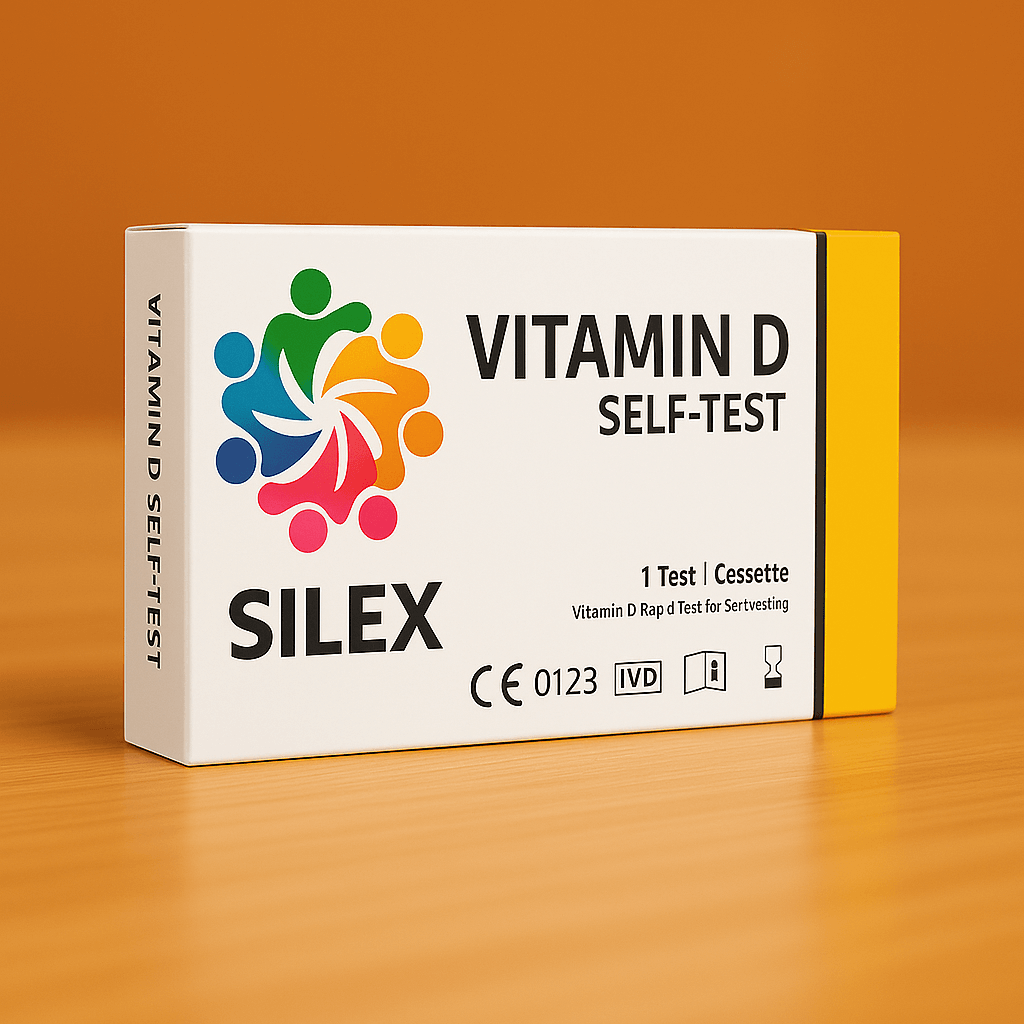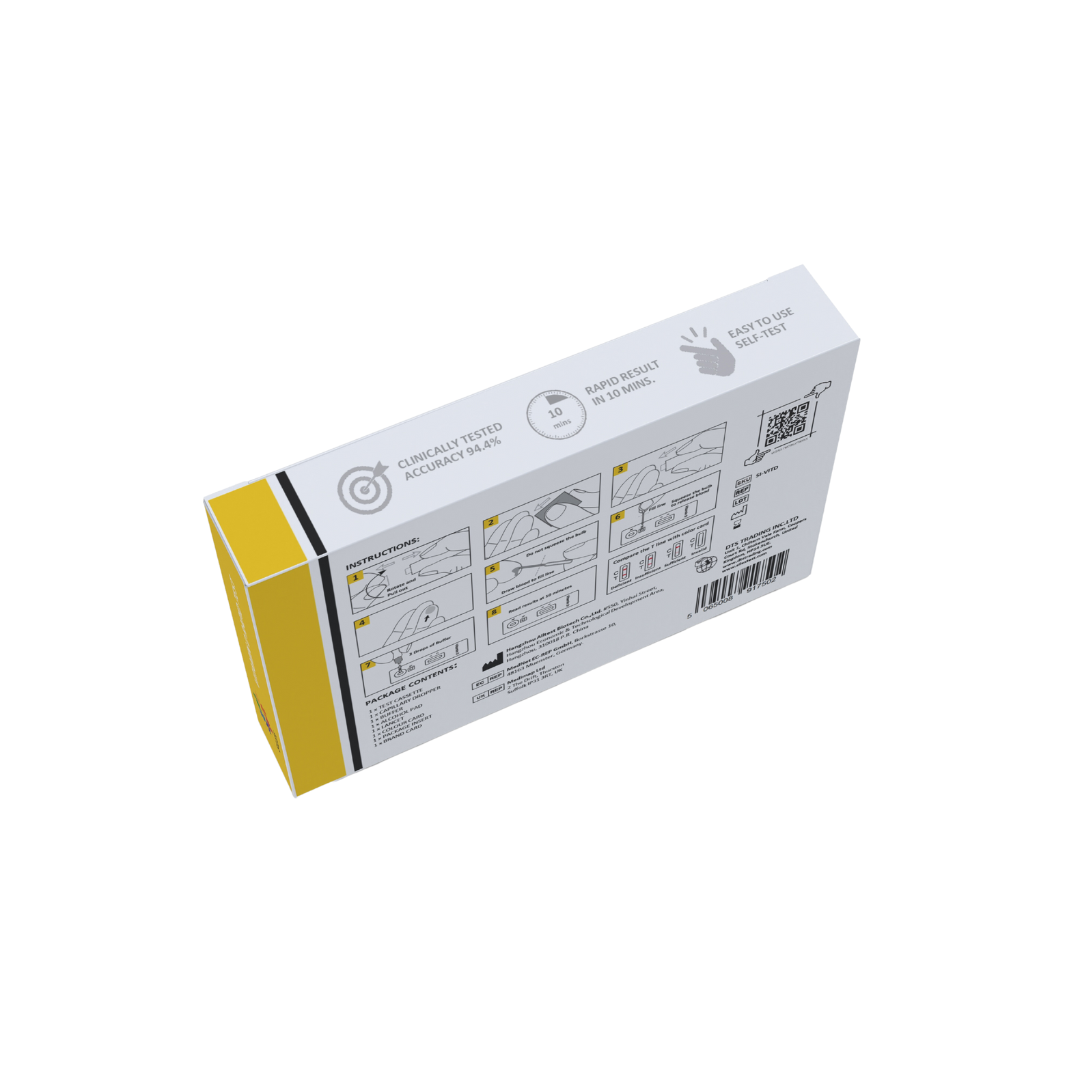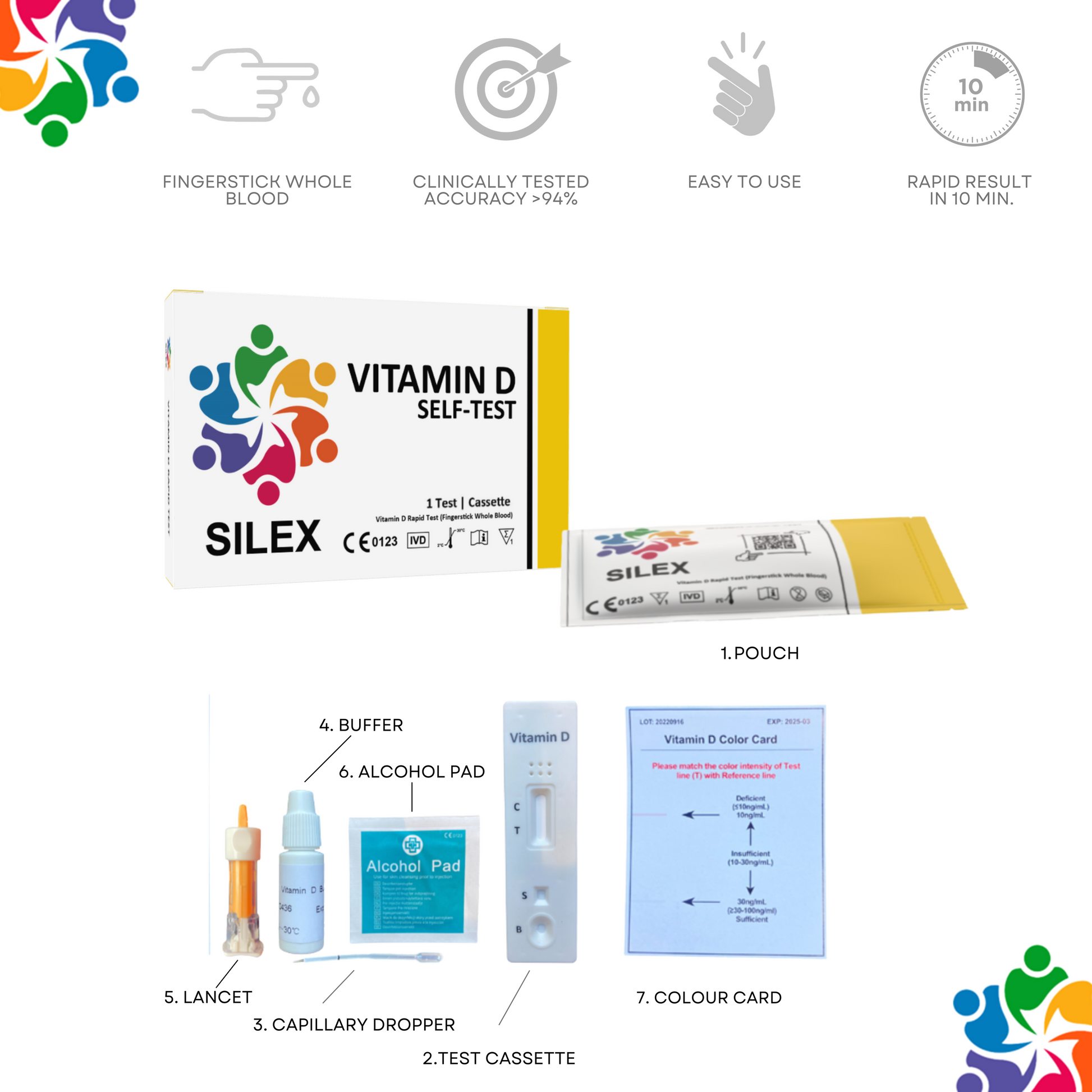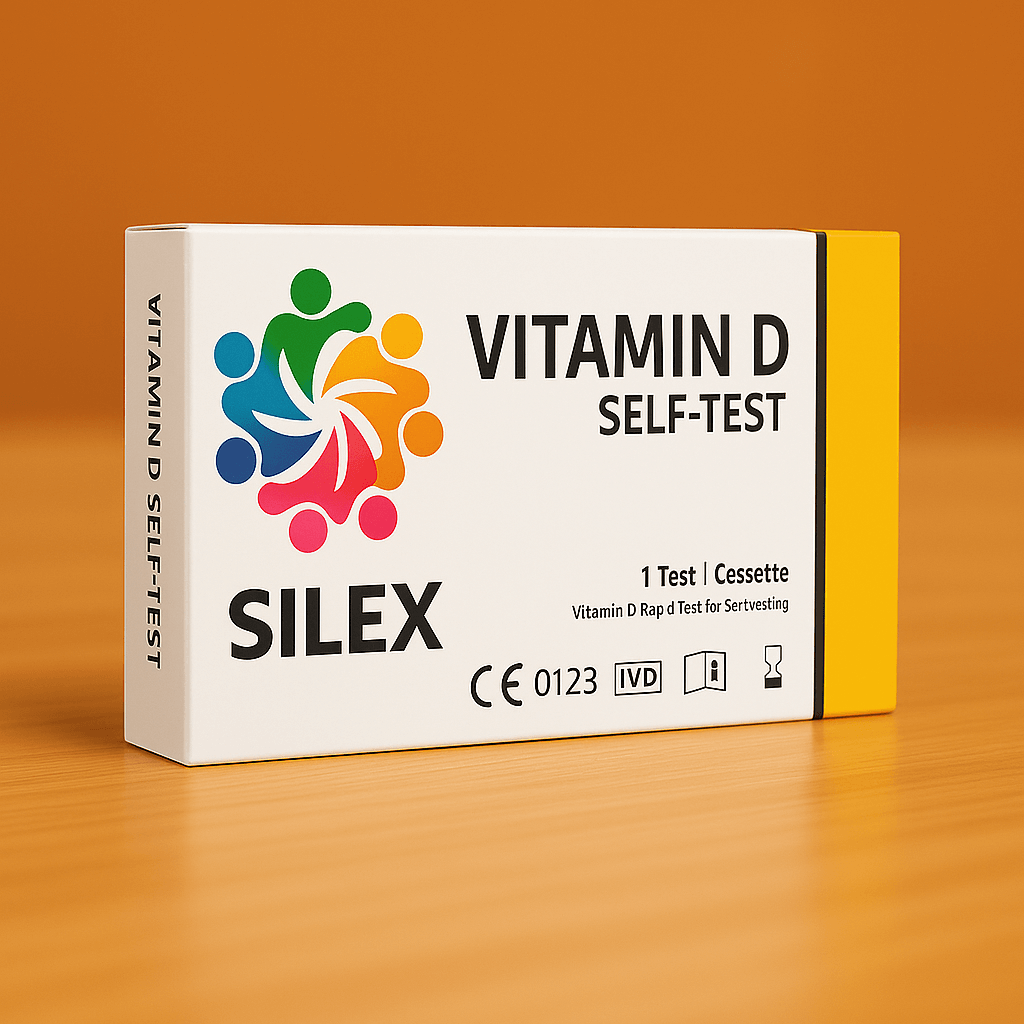

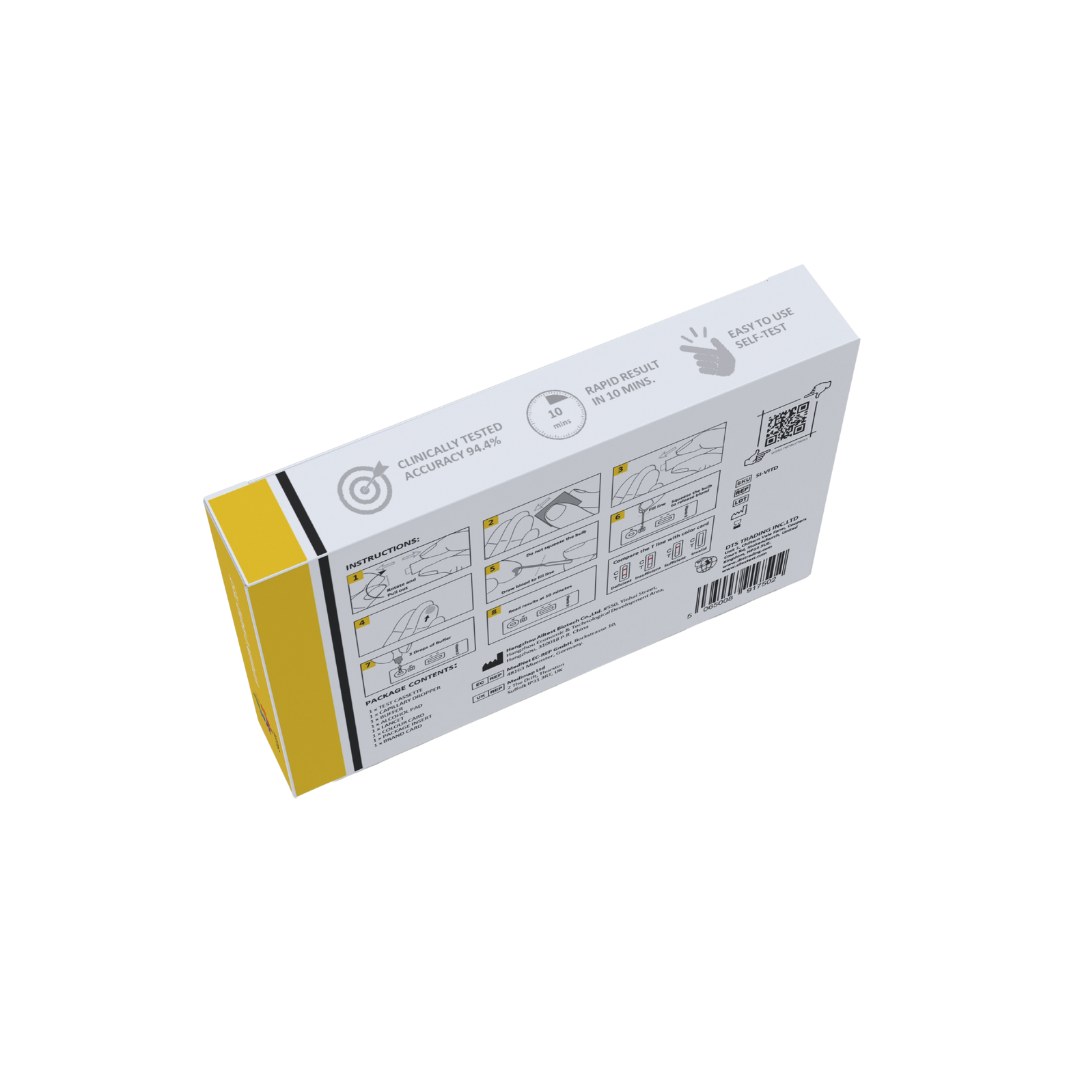
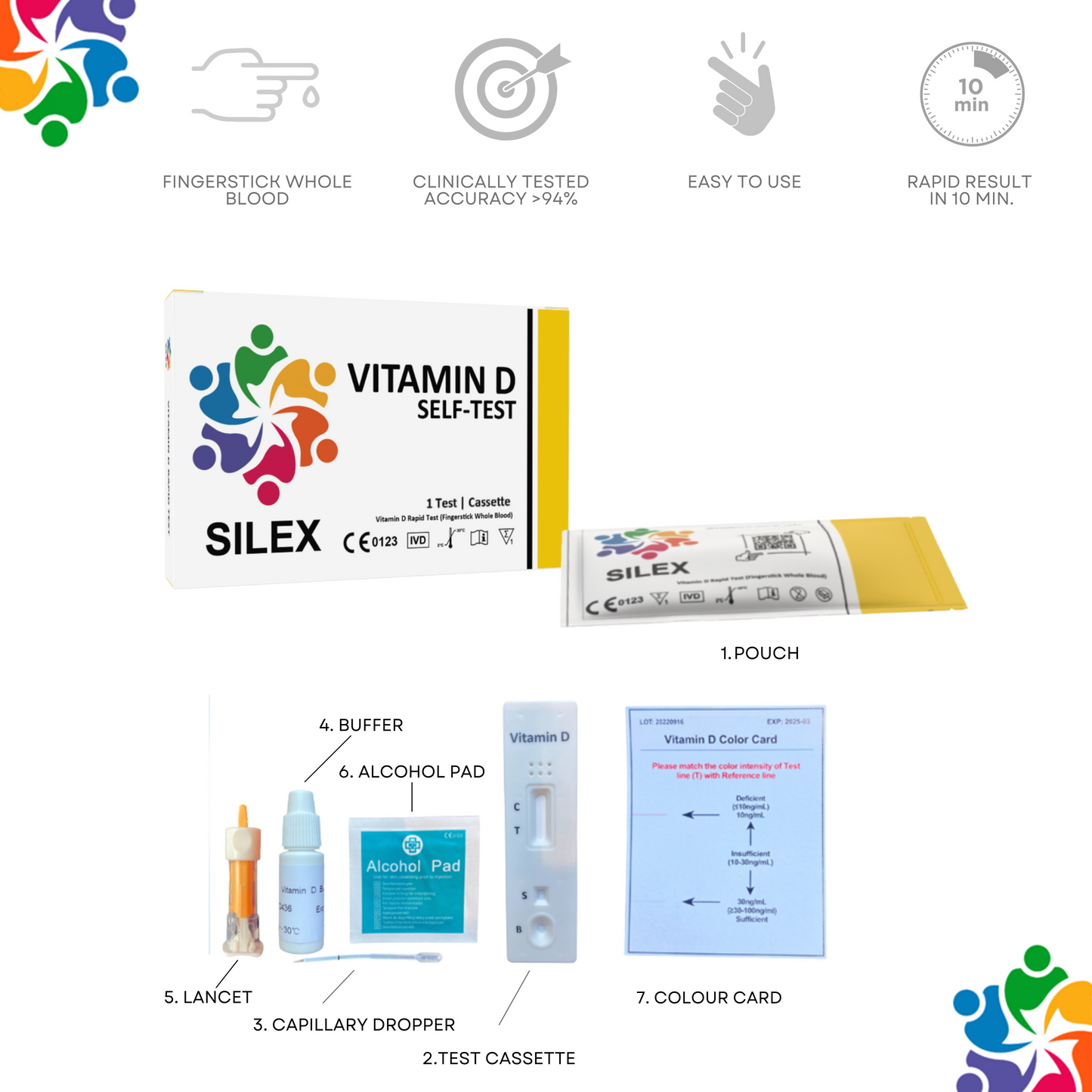
How to Use
- Use the alcohol wipe included in the kit to thoroughly clean your fingertip.
- Press the lancet firmly onto your finger. A small drop of blood should appear.
- Use the capillary dropper to collect the blood sample.
- Squeeze the dropper to release the blood into the sample well on the specimen cassette.
- Add two drops of the buffer liquid (included in the kit) into the cassette
- Leave the cassette undisturbed and wait 10 minutes.
- Check the result window for your test outcome.
Symptoms of Low Vitamin D
While many people with a vitamin D deficiency may not experience any symptoms, others might notice:
- weakness
- early fatigue or tiredness
- muscle aches and pains
- bone pain or fracturing bones without much force
A lot of people with Vitamin D deficiency will not have any symptoms.

